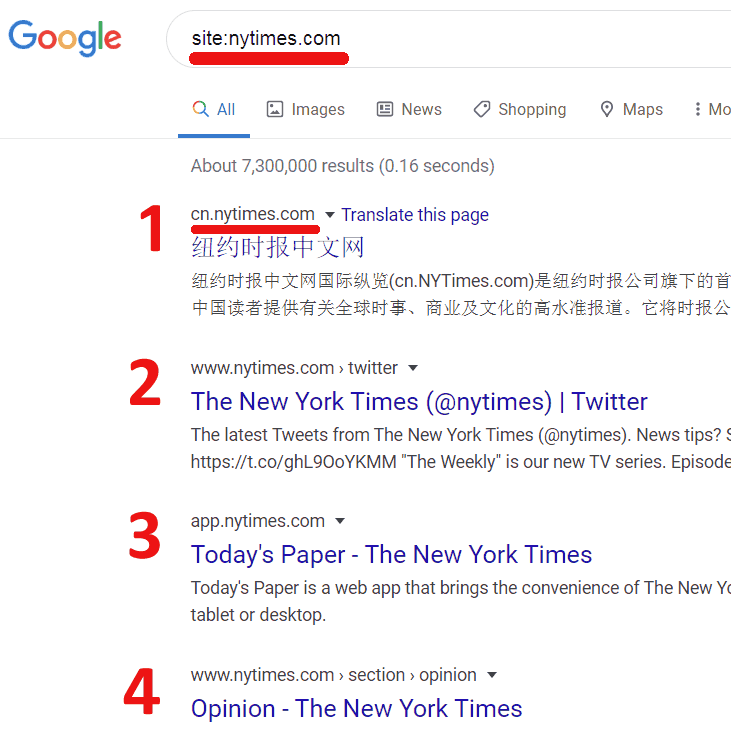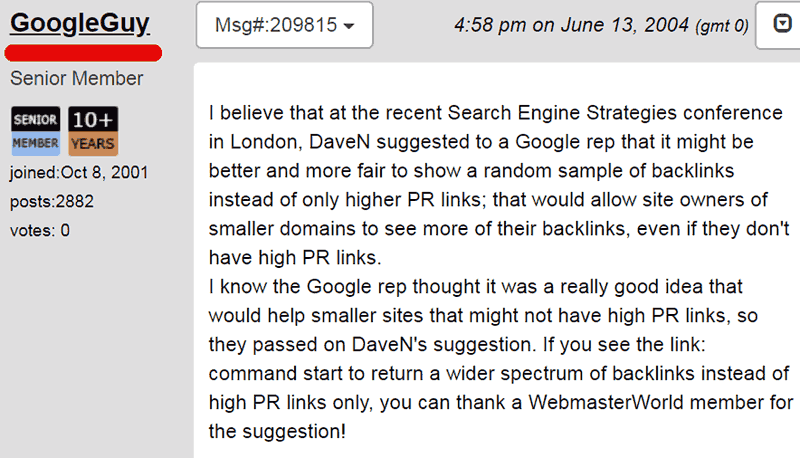
Advanced search operators can be useful. Many people use them for diagnostic purposes, particularly the site: search. There are however solid reasons to not depend on Google’s site: search to gain insights into site rankings, indexing or Google’s algorithm itself.
Site Search Unplugged from Google’s Algorithm
The site:search is not connected with Google’s algorithm. This is in fact true for all of the advanced search operators.
Advanced search operators are designed to do a single thing and they don’t need the natural language processing or a backlink analysis to accomplish their role.
There are no insights related to the search algorithm that can be obtained from a site:search. SEOs have been trying for the past 17 or so years and if anything had come of it we’d be talking about it right now.
Site Search May be Random and Incomplete
The site search operator shows a random and incomplete search results. For some sites the site:search operator will show different results if you switch browsers.
The Google Search Console has more complete and accurate information related to indexing.
The results of Google’s advanced search operators have traditionally been incomplete and/or randomized. More importantly, the site: search is disconnected from Google’s ranking algorithm.
Below is a screenshot of a site: search of the New York Times. Strangely, a Chinese language subdomain is listed first. One would think that the home page, arguably being the most popular page, would be the first result. The next page that is listed is a Twitter page. I had no idea either of those pages existed.

This site search of the New York Times website shows how random the site search results are.
Advanced Search Operators and Randomization
The old link search operator is an interesting example of how Google randomizes and limits the information that is shown.
At first the link search showed sites that were ranked PageRank 4 or higher. My recollection of the reason that the choice to only show backlinks from sites that were PageRank 4 or more was done in order to show an incomplete listing of backlinks.
The choice to show only PageRank 4+ sites was arbitrary.
In 2004 search marketer Dave Naylor (DaveN) approached a Google engineer at a search conference and suggested that it would be better to show a random selection of backlinks regardless of PageRank. The reason was because smaller sites would be able to see more of their backlinks.
Former Google engineer Matt Cutts related those events in a WebmasterWorld post under the nickname of GoogleGuy:
“I believe that at the recent Search Engine Strategies conference in London, DaveN suggested to a Google rep that it might be better and more fair to show a random sample of backlinks instead of only higher PR links; that would allow site owners of smaller domains to see more of their backlinks, even if they don’t have high PR links.
I know the Google rep thought it was a really good idea that would help smaller sites that might not have high PR links, so they passed on DaveN’s suggestion. If you see the link: command start to return a wider spectrum of backlinks instead of high PR links only, you can thank a WebmasterWorld member for the suggestion!”

Screenshot of a WebmasterWorld post by GoogleGuy aka former Google engineer Matt Cutts.
Why Talk About Link Search Operator?The reason I am showing the example of a link search operator is because Google confirmed that a search operator was going to show a random sample. It’s a rare situation where someone from Google openly discussed the choices made for one of the advanced search operators.
Advanced Search Operators Are Separate from Core Algorithm
As the example of the link search operator illustrates., the advanced search operators are purposely designed to do a limited job that is outside of the algorithm.
When the allintitle, allinurl and link search operators were first introduced, the SEO community went wild trying to deconstruct Google’s algorithm. They spent HOURS trying to figure out why their site ranked #1 in allintitle SERPs but not in the regular SERPs. etc.
Many hours were wasted trying to correlated the advanced search operators with rankings for the past 16 or 17 years. If anything useful had been found we would be talking about those specifics today.
But we’re not talking about it because Google has purposely engineered those advanced search operators to show a sample. Everybody knows that Google’s Search Console is more accurate.
Google’s John Mueller Warns About Assumptions
Google’s John Mueller recently warned against making assumptions based on the site: search.
The point is that the site: search operator is not useful for diagnosing ranking issues or trying to understand Google’s algorithm.
Source: https://www.searchenginejournal.com
